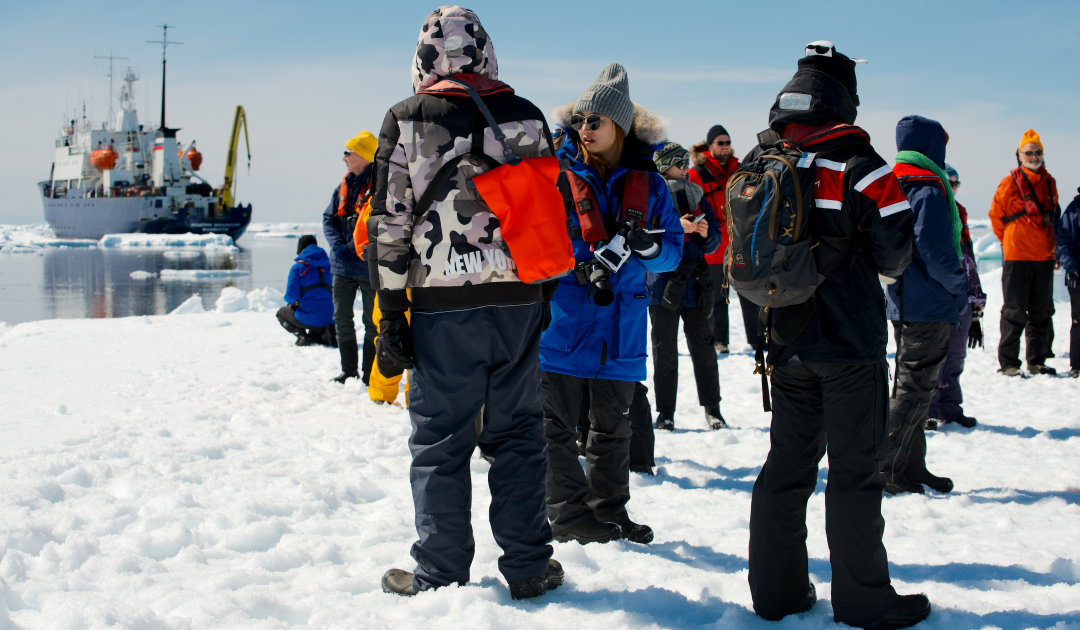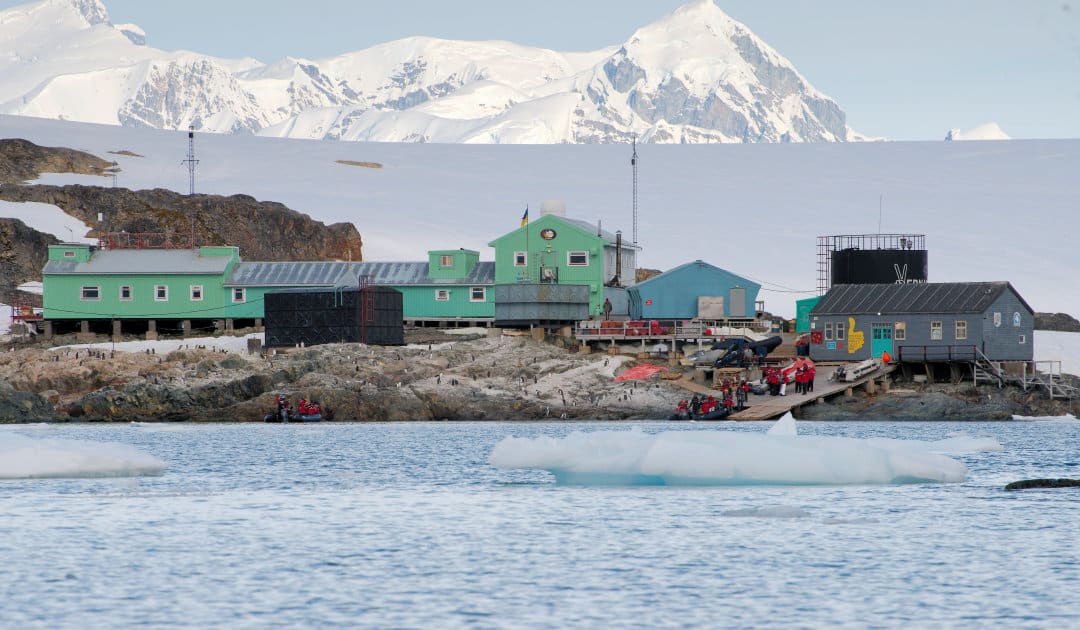
Antarctic travel has literally been put on hold since the outbreak of the COVID pandemic. At the beginning of last year’s season, there was initially hope that trips could be made after all. But hopes were dashed as the number of infections rose sharply worldwide. Things are a little different this year. The travel industry is opening up further, protective measures are more coordinated and people’s confidence is rising again. That is why most members of the International Association of Antarctic Tour Operators (IAATO) have started their preparations for the opening of the upcoming season. This after long discussions and in cooperation with the gateways in Argentina and Chile.
The organisation, which turned 30 this year, held a meeting with members on Thursday (September 16) to discuss operations for the season ahead following recently released COVID-19 parameters for travel from Antarctic Gateways Argentina, Chile and the Falkland Islands (Islas Malvinas). Gina Greer, IAATO Executive Director, said: “The past year-and-a-half has been challenging as we’ve learned more about COVID-19, and we and our members have constantly been re-evaluating the feasibility of a season. This has required a great deal of flexibility and agile working on behalf of our members and conversations are continuing as the season draws closer.”

The Association, which has more than 100 members worldwide, has been working diligently over the last 16 months to deliver keystone recommendations regarding COVID-19 protocols when Antarctic operations resume in late 2021. Much of this work has involved close collaboration with Antarctic gateway countries. Much of this work has involved close collaboration with Antarctic gateway countries. Some members have taken the difficult decision not to operate for the 2021/22 season, but for the majority, preparations are continuing.

One of IAATO’s strengths is the willingness of the membership to set competitive interests aside to come together to act for Antarctica by sharing best practice for safe and responsible operations. This approach resulted in the formation of IAATO’s COVID-19 Advisory Group (CAG) in June 2020. This approach resulted in the formation of IAATO’s COVID-19 Advisory Group (CAG) in June 2020. The CAG has leveraged the strength, skills, and experience of IAATO’s existing committees and working groups, as well as the expertise of the secretariat, stakeholders, and worldwide industry standards to lead the organisation through the challenges and complexities of the pandemic. As the traditional start of the Antarctic season draws closer, the CAG, has continued to closely monitor global developments as restrictions on travel begin to ease, communicating with Antarctic Gateway countries and other polar stakeholders as governments release their policies and protocols, sharing regular updates with the wider membership.

Over the last two months gateway governments released initial guidance. Operators have raised questions about the feasibility of some requirements given the diverse nature of the IAATO membership, which ranges from yachts carrying no more than 12 people to large cruise vessels. Greer added: “Our work with the Antarctic Gateway authorities is a critical part of pre-season preparations, and it is important to IAATO and its members that the diversity of the IAATO membership is reflected within gateways’ COVID-19 protocols so that they can be applied to all responsible tourism providers. She continues: “It’s been encouraging to see the recent guidance from Argentina and Chile relating to Antarctic tourism, but the reality is that it will be challenging for some operators to implement. There are still a lot of questions and we’re working through them with the Gateway authorities.”

IAATO’s usual pre-season preparations continue. AATO operators must operate under a permit or authorization from an Antarctic Treaty Party or relevant government, submitting their Advance Notification and Environmental Impact Assessment to IAATO ahead of the Antarctic season. While the impact of the pandemic has created challenges for the association and its members, IAATO’s mission of advocating and promoting the practice of safe and environmentally responsible Antarctic tourism endures. IAATO Committee and Working Group efforts throughout the last year have supported the organization in honing its policies and strategies to protect Antarctica while enabling Antarctic travellers to have a safe, enriching, educational experience.
Press release IAATO
List of IAATO recommendations for minimizing the risk of COVID infection during Antarctic travel:
- Passengers are fully vaccinated before boarding at their point of departure;
- Crew members and staff shall be fully vaccinated prior to embarkation;
- In certain circumstances, when vaccination is not feasible or applicable, individuals have appropriate documentation for recovery from COVID-19 or are quarantined according to the latest medical advice and/or relevant national requirements;
- In addition to the steps listed above, operators shall implement an effective testing regimen to detect the presence of COVID-19 and take the necessary steps to reduce potential spread.





